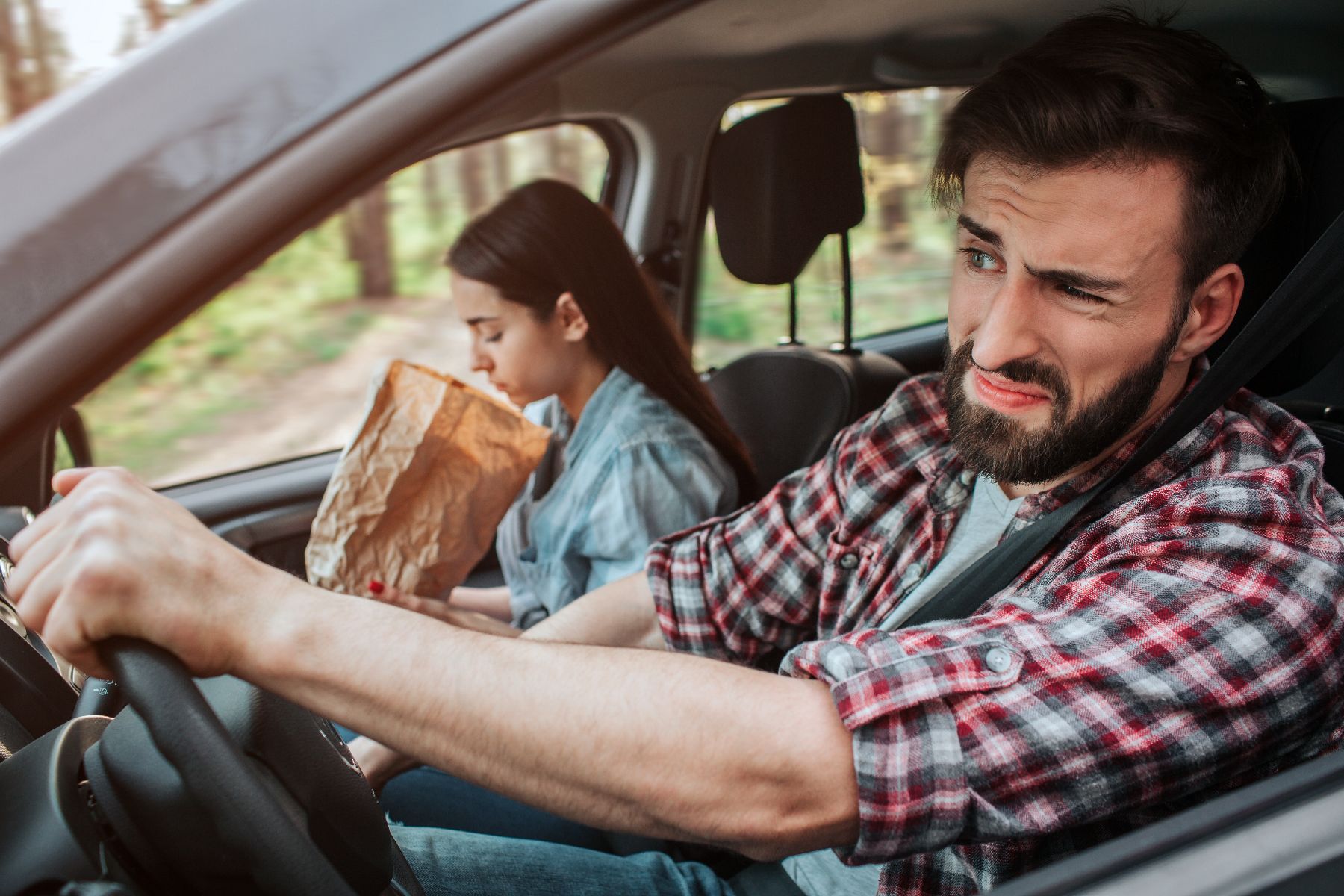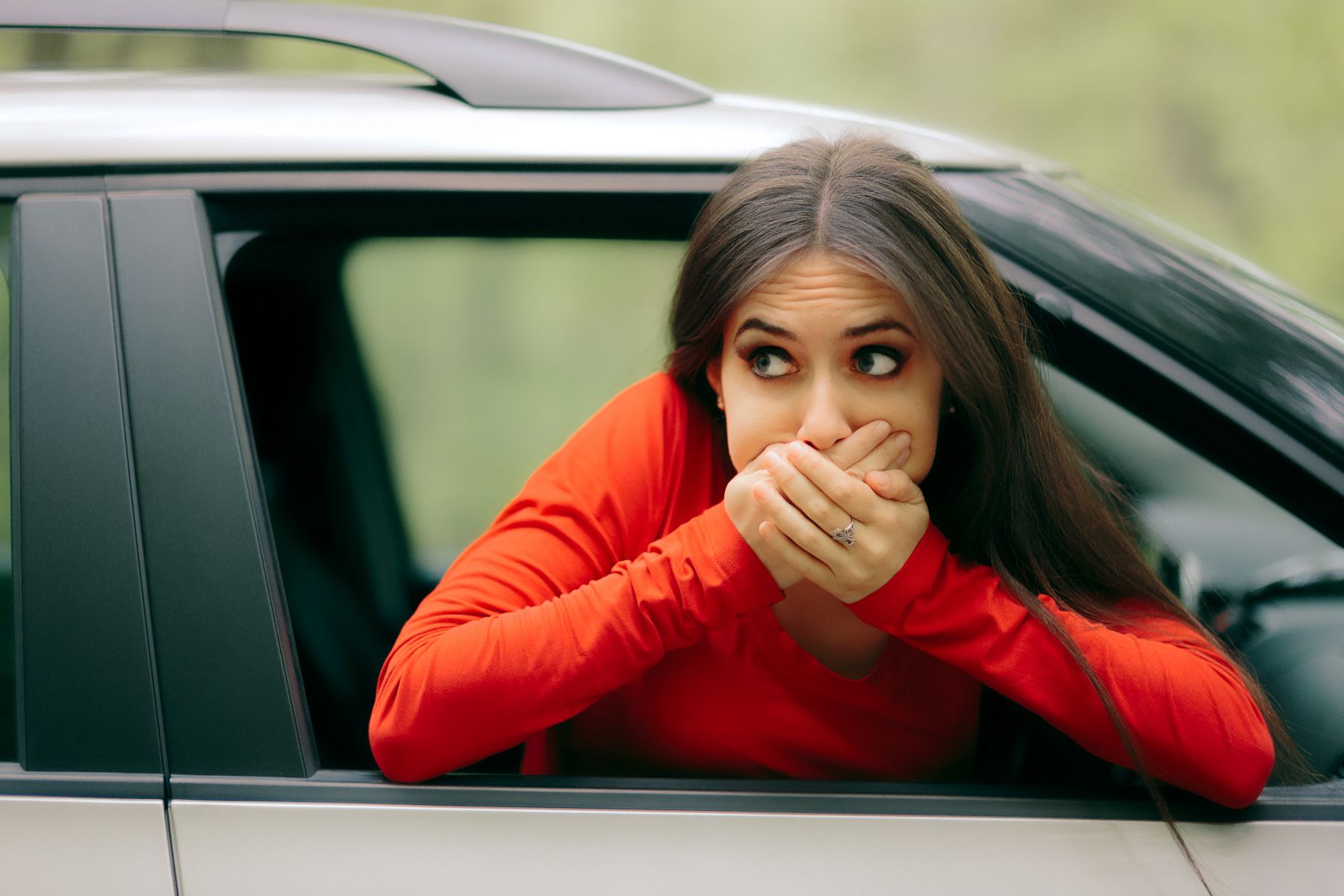
Whether you’re on the school run, heading to work or driving on holiday, travel sickness can make any car journey unpleasant.
The RAC reports that up to one in five people feel sick when travelling in a car as a passenger, but certain factors can make the problem worse.
In this brief guide, we’ll look at the leading triggers for car sickness, along with tips on how best to avoid it.
What causes car sickness?
Research by Euro Car Parts revealed the 10 factors that are most likely to cause travel sickness. In order of magnitude, these are:
- Reading a book or magazine (39 percent)
- Travelling backwards (38 percent)
- Sitting in the back seat (31 percent)
- Travelling while tired (17 percent)
- After drinking alcohol (16 percent)
- Watching a screen (15 percent)
- Dehydration (15 percent)
- Travelling while hungry (14.7 percent)
- Standing while travelling – e.g. on public transport (11 percent)
- Travelling after eating (6 percent)
The physical cause of travel sickness, according to GP Dr Sarah Brewer, is overstimulation of motion-sensing cells inside the inner ear.
For 66 percent of sufferers, this results in nausea. Vomiting is experienced by 31 percent. A general feeling of being unwell is the main symptom for 30 percent of people.
How can you prevent car sickness?

Eat the right food
According to Dr Brewer, food and drink is the biggest factor in travel sickness. Heading off on an empty stomach can cause problems – but the wrong foods could also mean trouble. Having a light meal 45-60 minutes before a journey, and eating bland snacks on the move, are both recommended.
However, the temptation of a greasy takeaway at the motorway services is best avoided, with fatty foods likely to cause an upset. As a diuretic that can cause dehydration, alcohol should also be given a miss, even if you’re not the designated driver.
Stay off screens
Put down your mobile phone, stop trying to read that magazine and simply look out of the window. A few classic in-car games will keep you scanning your surroundings. A few rounds of I-Spy, anyone?
Wind down the windows
A stuffy, confined space can induce sickness at the best of times – and doubly so in a moving car. Even air conditioning is no substitute for fresh air, so lower the windows and enjoy the breeze.
Ask the driver to slow down
Make sure your driver isn’t doing their best impression of Lewis Hamilton. A smooth, steady drive is far more likely to be vomit-free than a re-enactment of a lap around the Top Gear test track. Equally, ask them to stay off twisty, undulating roads if possible. Straight and steady on A-roads and motorways is best.
Take a break
Many sufferers of car sickness say it mostly affects them on long journeys. A refreshing break away from the car could be all you need. Just steer clear of that XXL burger at the services…
ALSO READ:
What will the 2035 petrol and diesel car ban mean for you?